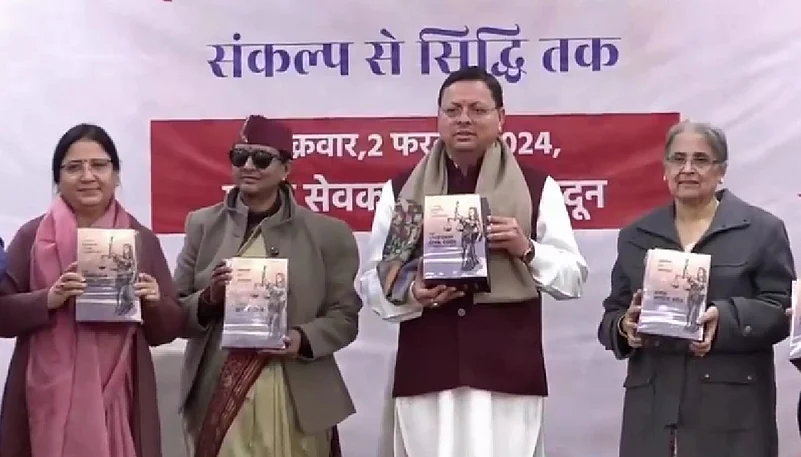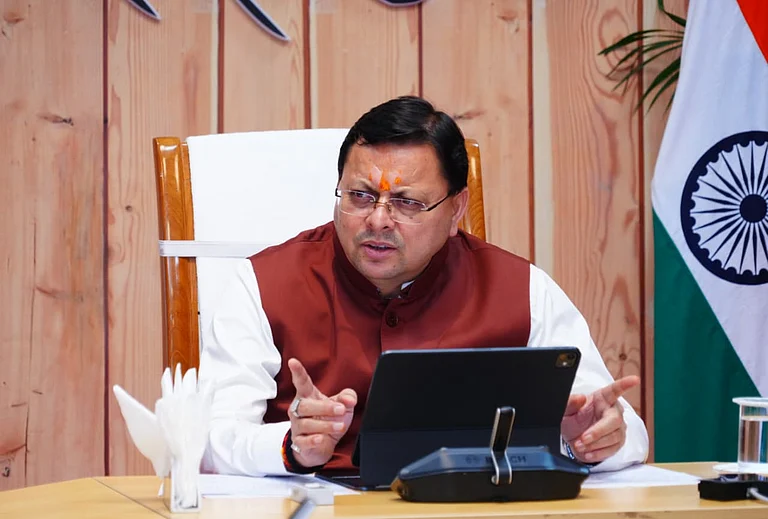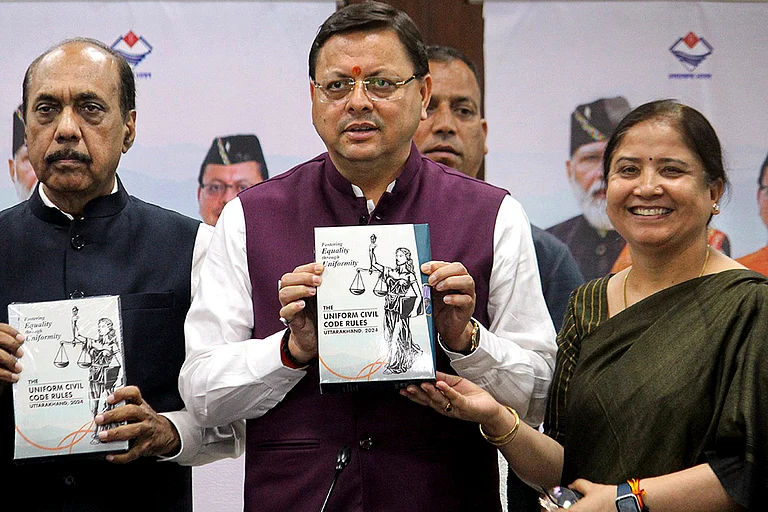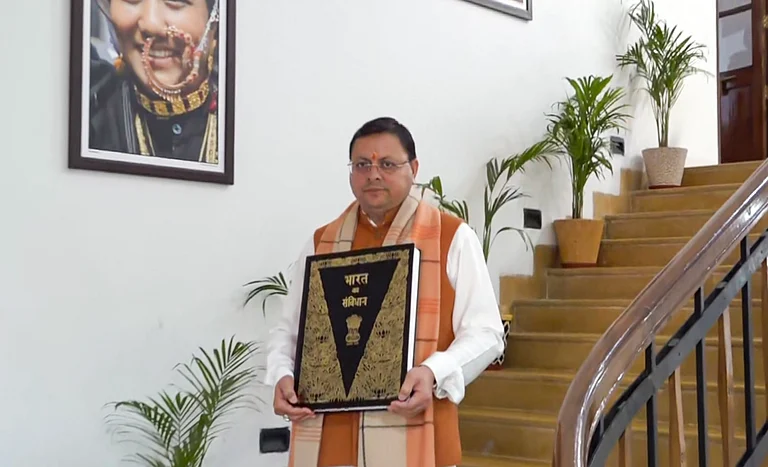A five-member state-appointed committee submitted its draft of the Uniform Civil Code (UCC) to Uttarakhand Chief Minister Pushkar Singh Dhami in Dehradun on Monday, paving way for the first such legal framework by a state for uniform marriage, divorce, land, property and inheritance laws for citizens irrespective of religion. The panel headed by retired Supreme Court Judge Ranjana Prakash Desai has handed over the draft bill to the chief minister, who will take it up in the state cabinet for a discussion.
It is expected to be tabled on February 5, during a four-day session of the Uttarakhand Assembly convened specially to pass the UCC legislation.
The UCC promise stems from Article 44 in Part IV of the Constitution, under the Directive Principles of State Policy, which says that the state shall endeavour to secure for the citizens a uniform civil code throughout the territory of India. Directive principles are guiding principles for government policies and are considered “fundamental in the governance of the country”.
How did UCC pitch in Uttarakhand come about?
The introduction of UCC was one of the key promises made by the Bharatiya Janata Party (BJP) in the run-up to the 2014 Lok Sabha elections. The party reiterated this promise during its campaigning in the 2022 Uttarakhand Assembly elections. After its landslide victory for a second consecutive term–a feat achieved for the first time by any political party in the state–Chief Minister Dhami, in his first cabinet meeting, formed an expert committee to prepare a draft. The decision received strong opposition from rival parties and certain sections of society.
The draft of the bill was initially planned to be submitted in December 2022, but it was extended four times before finalising its report just ahead of the 2024 general elections. Over the course of its draft, the panel received 2.33 lakh written suggestions, while its sub-committees held extensive discussions with about 60,000 people from various communities, classes, stakeholders and political parties.
If implemented, Uttarakhand will become the first state in the country since Independence to adopt the UCC. It is also believed that Uttarakhand’s civil code could become a template for UCC laws in other BJP-run states – or even at the national level.
What to expect in Uttarakhand UCC?
UCC is a common code of personal laws for people of all religions. During a gathering in Haridwar in December, CM Dhami had proclaimed that the decision to introduce UCC was as significant as the construction of the Ayodhya Ram Temple or the abrogation of Article 370 that scrapped Jammu and Kashmir’s special status.
The Uttarakhand government and the UCC committee have said that gender equality was one of their top priorities when preparing the report and that the legislation will introduce provisions that treat men and women equally in issues relating to inheritance. According to reports, UCC is also expected to reject practices like polygamy, polyandry, and Muslim practices like iddat, halala and khula, and regulate live-in relationships with mandatory declarations. There are speculations that the age of marriage for women could be raised to 21, however, some reports say it is likely to remain the same. There are also reports that the UCC could bring in a recommendation to fix number of children in a family for population control.
Concerns around Uttarakhand UCC
A majority of rules under the common code are aimed towards the upliftment of Muslim women, the government has claimed. However, several legal and social experts have expressed doubts about actual gender equality through the law beyond mere politics to further their communal agenda. The committee has reportedly also considered the LGBTQ community in drafting the legislation. However, details are yet to emerge as to how it will affect their freedom and rights.
Another concern around the UCC legislation was how it would affect the tribal community. In Hyderabad, ahead of Telangana Assembly elections where the BJP had also pitched UCC, AIMIM chief Asaduddin Owaisi had hit out at the BJP challenging Amit Shah to go to the tribal-dominated areas of Adilabad, Khammam and Warangal and tell the Adivasis there about implementation of the UCC. "What is required in this country is more freedom of speech and expression wherein people will not be targetted for the clothes they wear or for the religion they belong to," he had said.
Leaders of many tribal bodies have expressed fear that UCC could infringe on their customary laws and socio-cultural practices that are constitutionally safeguarded. Similar concerns were raised in Uttarakhand, which is home to several tribes including the Jaunsari, Bhotiyas, Tharu, Raji, and Buksa.
According to an Economic Times report, after several discussions and deliberations with tribal groups, the panel has however decided to fully exempt the state’s tribal population from the UCC provisions. Unknown officials told the daily that there was considerable support for the ‘reforms’ proposed from the population, which led them to the decision for exemption.
Will other BJP states follow?
Uttarakhand’s common code is expected to become the baseline for other BJP-ruled states that intend to implement the controversial legislation. Similar bills are likely to be introduced in Gujarat and Assam, where the governments have already supported the idea.
Shortly after the Uttarakhand announcement, Assam Chief Minister Himanta Biswa Sarma said that his government was closely monitoring the draft bill to see if it could be implemented in the northeastern state. He had earlier said that he was waiting for Uttarakhand and Gujarat’s UCC bills and would subsequently introduce the same in Assam. Assam’s Assembly session starts on February 15.
Meanwhile, the Uttarakhand Police has stepped up security measures to maintain peace during the UCC session. The directive has been given amid chances of protest against the presentation of the controversial bill.


























